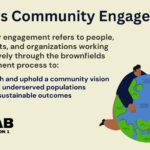The Power of Inclusion: Embracing Diversity in Our Communities
Inclusion is a powerful concept that lies at the heart of creating welcoming and supportive communities. It is the idea that everyone, regardless of their background, identity, or abilities, should be valued, respected, and given equal opportunities to participate and contribute.
When we embrace inclusion in our communities, we open doors to a world of diverse perspectives, experiences, and talents. By welcoming people from all walks of life, we enrich our collective understanding, foster creativity and innovation, and build stronger bonds among community members.
One of the key benefits of inclusion is that it promotes empathy and understanding. When we interact with people who are different from us, we gain new insights into their lives and challenges. This helps us develop greater compassion and empathy for others, leading to more harmonious relationships and a deeper sense of connection within our communities.
Inclusive communities are also more resilient and adaptable. By bringing together individuals with a wide range of backgrounds and skills, we are better equipped to tackle complex problems and navigate change effectively. Inclusion fosters collaboration and teamwork, enabling us to harness the collective wisdom and strengths of all community members.
As we strive to create inclusive communities, it is important to recognize that inclusion is not just a lofty ideal—it is a fundamental human right. Every person deserves to feel accepted for who they are and have the opportunity to fully participate in society without fear of discrimination or exclusion.
By championing inclusion in our communities, we can create spaces where everyone feels valued, respected, and empowered to be their authentic selves. Together, let us embrace diversity, celebrate individual differences, and build a more inclusive world for all.
6 Essential Tips for Fostering Inclusion and Celebrating Diversity
- Listen actively to others’ perspectives and experiences.
- Be open-minded and willing to learn from different cultures and backgrounds.
- Use inclusive language that respects all individuals, regardless of their identities.
- Create a welcoming environment where everyone feels valued and respected.
- Celebrate diversity and promote equality in all aspects of life.
- Educate yourself about various forms of discrimination and work towards eliminating them.
Listen actively to others’ perspectives and experiences.
Active listening to others’ perspectives and experiences is a key aspect of fostering inclusion in our interactions and communities. By truly listening to what others have to say without judgment or interruption, we demonstrate respect for their unique viewpoints and validate their lived experiences. Active listening allows us to gain a deeper understanding of different perspectives, build empathy, and create meaningful connections with others. Through this practice, we can cultivate a culture of inclusivity where every voice is heard and valued.
Be open-minded and willing to learn from different cultures and backgrounds.
Being open-minded and willing to learn from different cultures and backgrounds is key to fostering inclusion in our communities. When we approach others with curiosity and a willingness to understand their perspectives, we not only expand our own horizons but also create opportunities for meaningful connections and mutual respect. Embracing diversity enriches our lives and enables us to build bridges across cultural divides, leading to a more inclusive and harmonious society where everyone feels valued and appreciated for who they are.
Use inclusive language that respects all individuals, regardless of their identities.
Using inclusive language that respects all individuals, regardless of their identities, is a powerful way to promote a sense of belonging and acceptance within our communities. By being mindful of the words we use and choosing language that is welcoming and affirming to everyone, we create an environment where diversity is celebrated and differences are embraced. Inclusive language helps to foster empathy, understanding, and mutual respect among individuals from various backgrounds, ultimately contributing to a more inclusive and harmonious society.
Create a welcoming environment where everyone feels valued and respected.
Creating a welcoming environment where everyone feels valued and respected is essential for fostering a sense of belonging and inclusion. When individuals are greeted with warmth and acceptance, they are more likely to feel comfortable expressing their thoughts, sharing their experiences, and engaging with others authentically. By prioritizing respect and appreciation for all members of the community, we can cultivate a space where diversity is celebrated, relationships are strengthened, and everyone has the opportunity to thrive and contribute positively.
Celebrate diversity and promote equality in all aspects of life.
Celebrating diversity and promoting equality in all aspects of life is a powerful tip for fostering inclusion in our communities. By embracing the unique backgrounds, perspectives, and identities of individuals, we create a more vibrant and enriching environment where everyone feels valued and respected. When we strive for equality in opportunities, treatment, and representation, we ensure that each person has a fair chance to thrive and contribute their talents to the world. Embracing diversity not only enhances our collective experiences but also paves the way for a more inclusive and equitable society where everyone can flourish.
Educate yourself about various forms of discrimination and work towards eliminating them.
To foster a truly inclusive environment, it is essential to educate oneself about the various forms of discrimination that exist and actively work towards eliminating them. By gaining knowledge and awareness about issues such as racism, sexism, ableism, and other forms of prejudice, individuals can better understand the challenges faced by marginalized groups and take meaningful steps to combat discrimination. Through education and advocacy efforts, we can create a more equitable society where everyone is treated with dignity and respect, regardless of their background or identity.





Leave a Reply